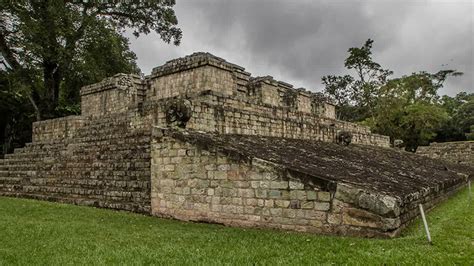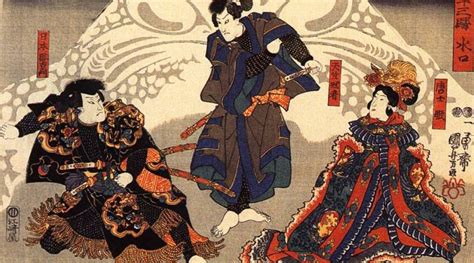Explore the rich history of Chile from the Pre-Columbian Era to Modern times, including the Spanish Conquest and Independence Movement.
Pre-Columbian Era
The Pre-Columbian Era of Chile refers to the time period before the arrival of Christopher Columbus in the Americas. This era is characterized by the indigenous peoples who inhabited the region for thousands of years before the arrival of European explorers. The early inhabitants of Chile were the indigenous Mapuche, Aymara, and Atacameño peoples, who lived in the central and southern regions of the country.
The Mapuche people were known for their resistance to Incan and Spanish conquest, and their culture and traditions continue to be an important part of Chilean identity today. The Aymara and Atacameño peoples lived in the northern regions of Chile and were known for their skill in agriculture and metalworking.
The Pre-Columbian Era of Chile was a time of rich cultural and technological development, with the indigenous peoples of the region creating intricate pottery, textiles, and metalwork. They also developed complex irrigation systems and agricultural techniques that allowed them to thrive in the diverse landscapes of Chile.
Overall, the Pre-Columbian Era of Chile was a time of great innovation and cultural diversity, as the indigenous peoples of the region developed unique and advanced societies that laid the foundation for the modern nation of Chile.
Spanish Conquest
The Spanish Conquest of Chile began in the mid-16th century when Spanish explorers arrived in the region in search of gold and other resources. The expedition was led by Pedro de Valdivia, who founded the city of Santiago in 1541. The Spanish conquistadors faced resistance from the indigenous Mapuche people, who put up a fierce fight to defend their lands and freedom. Despite the challenges, the Spanish ultimately prevailed and established their colonial rule over Chile.
During the conquest, the Spanish employed various tactics to subdue the indigenous population, including violence, forced labor, and the spread of diseases. The arrival of the Spanish also had a profound impact on the cultural and social fabric of Chile, as the European influence began to reshape the region. The introduction of new crops, animals, and technologies from Europe significantly altered the way of life for the indigenous people.
The Spanish conquest led to the imposition of the colonial system in Chile, which was characterized by the exploitation of natural resources, the encomienda system, and the spread of Christianity. This period also marked the beginning of the decline of the indigenous population, as many succumbed to the diseases brought over by the Spanish and the harsh conditions of colonial rule. Despite the hardships, the indigenous Mapuche people continued to resist Spanish domination, and their legacy of resistance has endured to the present day.
The Spanish conquest had a lasting impact on the history and development of Chile, shaping the country’s culture, language, and societal structure. It also laid the groundwork for the subsequent colonial period, which further entrenched Spanish dominance in the region. The legacy of the Spanish conquest continues to influence Chilean society, as the country grapples with the complexities of its colonial past and strives to honor the resilience and heritage of its indigenous peoples.
Colonial Period
The Colonial Period in Chile refers to the time period from the 16th century to the early 19th century when the country was under Spanish rule. During this time, the Spanish Empire established control over the region, exploiting its resources and imposing their culture and religion on the indigenous population.
One of the major events during the Colonial Period was the establishment of the Captaincy General of Chile in 1541 by the Spanish conquistador Pedro de Valdivia. This marked the beginning of a new era for the region, as the Spanish sought to extract wealth from the land and its people.
Under Spanish rule, Chile was divided into various administrative districts, with the central valley becoming the center of agricultural production. The Spanish also introduced new crops and livestock to the region, significantly altering the landscape and economy of Chile.
Another important aspect of the Colonial Period was the influence of the Catholic Church. Spanish missionaries played a crucial role in converting the indigenous population to Christianity, creating a lasting impact on the religious and cultural landscape of Chile.
Despite the harsh conditions imposed by Spanish rule, the Colonial Period also saw the emergence of a distinct Chilean identity, blending indigenous, Spanish, and African influences to shape the country’s cultural heritage.
Independence Movement
The Independence Movement in Chile refers to the period of time in which the country fought for and ultimately gained its independence from Spanish rule. This movement was greatly influenced by events happening in other Latin American countries, as well as the ideas of the Enlightenment. The movement was led by key figures such as Bernardo O’Higgins, José Miguel Carrera, and Manuel Rodríguez.
One of the main catalysts for the Independence Movement in Chile was the establishment of juntas, or governing councils, in different cities throughout the country. These juntas were formed in response to the abdication of King Ferdinand VII of Spain and the subsequent power vacuum. The juntas sought to establish a local government that could govern independently from Spanish rule.
The movement was not without its challenges, as the Spanish forces fought hard to maintain control over the colony. However, after several years of battles and negotiations, Chile finally achieved its independence on February 12, 1818. This marked the beginning of a new chapter in Chilean history, as the country sought to establish itself as a sovereign nation.
The Independence Movement in Chile is celebrated annually on September 18th, known as Fiestas Patrias, or National Holidays. This day is a time for the people of Chile to commemorate the brave individuals who fought for their freedom and to reflect on the significance of their independence. It is a time of national pride and unity, as Chileans come together to honor their country’s history and heritage.
Modern Chile
Modern Chile has seen significant changes and developments in various aspects of society, economy, and politics. In recent years, the country has experienced a remarkable economic growth, becoming one of the most stable and prosperous nations in Latin America. This progress has been fueled by policies aimed at promoting trade, investment, and entrepreneurship, as well as a strong focus on education and innovation.
The modern Chilean society is characterized by diversity and inclusivity, with efforts being made to address social inequalities and improve the standard of living for all citizens. The government has implemented various social welfare programs and initiatives to provide better healthcare, education, and housing for the population, contributing to the overall well-being of Chilean society.
In terms of politics, Chile has transitioned from a period of authoritarian rule to a stable and functioning democracy. The country has held multiple free and fair elections, with peaceful transitions of power, and has successfully established a system of checks and balances to prevent the concentration of power in the hands of a few. Additionally, Chile has been actively engaged in regional and global affairs, promoting peace, democracy, and human rights.
On the economic front, Chile has diversified its economy, reducing its dependency on raw materials and exports, and has instead focused on developing industries such as technology, renewable energy, and tourism. This has not only boosted economic growth but has also contributed to environmental sustainability and conservation efforts.












